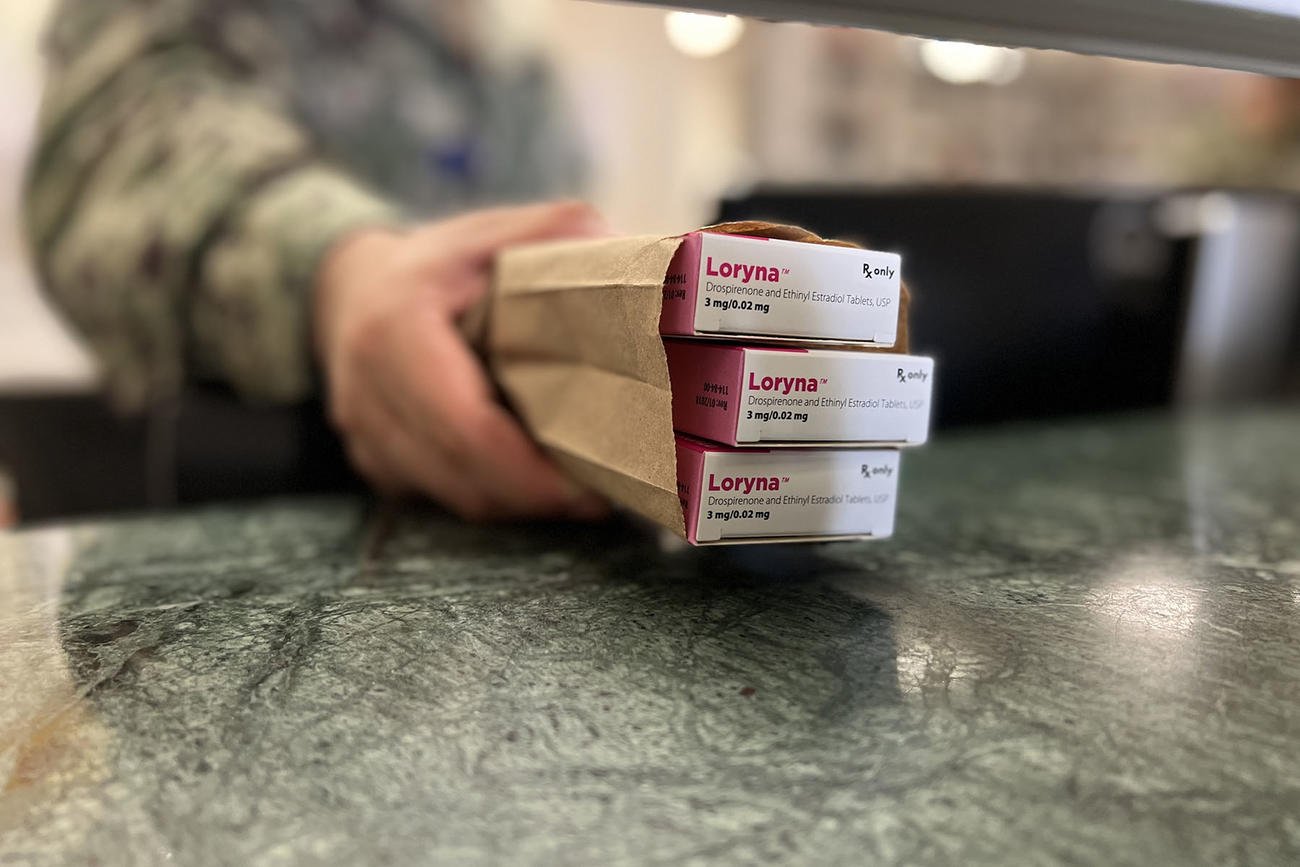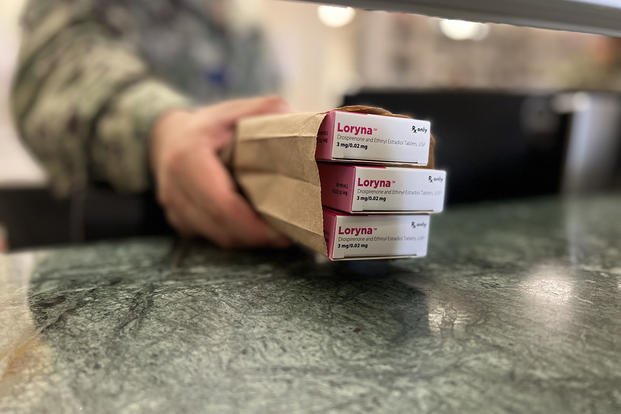
Free birth control will be available to all Tricare users after more than a decade of efforts to eliminate copays for contraception for military families were finally successful in this year’s annual defense policy bill.
Since the Affordable Care Act, also known as Obamacare, ended copays for birth control for private insurance plans, lawmakers, mostly Democrats, have pushed for military families to have the same benefit in their health insurance.
In the past, those efforts were unsuccessful because of concerns about costs, as well as Republican misconceptions about emergency birth control. But those objections faded away this year, and lawmakers have agreed to end Tricare copays for contraception in the National Defense Authorization Act, or NDAA, expected to become law by the end of the month.
Read Next: Transgender Troops, Confronting Shifting Policies of Acceptance, Just Want to Serve
“After more than a decade of advocacy, I’m so proud that my bipartisan amendment to ensure women in the military don’t have to pay a co-pay for FDA-approved contraception is in this year’s NDAA legislation,” Sen. Jeanne Shaheen, D-N.H., said in a statement to Military.com. “Service members who are sacrificing so much to protect our freedoms deserve the same access to contraception as their civilian counterparts. I look forward to seeing this long-overdue win for our military become law.”
More than 4 million female troops, dependents and retirees receive care through the military health system, including about 1.6 million women of reproductive age.
Despite some efforts to improve access to birth control in recent years, women in the military have continued to report difficulties. A Rand Corp. study released in 2022 found that about 18% of active-duty women said there had been at least one occasion in which they could not get their preferred method of birth control from the military health system.
Like with other prescriptions, birth control is available at military pharmacies for free. But military dependents and retirees getting their prescriptions filled at a retail or mail-order pharmacy have to pay a copayment under current policy. Copays range from $13 for a generic drug from a mail-order pharmacy to $43 for name-brand pills from a retail pharmacy.
Since July 2022, Tricare has waived copayments for some forms of contraception such as IUDs, or intrauterine devices, but it cannot legally waive copays for prescription pills without congressional approval.
Several times over the years, House lawmakers approved amendments to their initial version of the NDAA to waive Tricare copayments for birth control. But those amendments were always taken out of the final version of the bill that became law after negotiations with the Senate.
This year, for the first time, senators also included an amendment in their version of the NDAA to end copays for birth control.
One of the stated reasons that the birth control provisions were always taken out of the NDAA was that waiving copays would increase what’s known as mandatory spending, and congressional rules generally require increases in mandatory spending to be balanced out elsewhere in the federal budget.
Supporters of ending copayments for birth control, though, argued the concerns about mandatory spending were an excuse to avoid a more substantive debate. Another hurdle to passage in the past was GOP opposition to emergency contraception over the mistaken belief that it is a type of abortion.
Earlier versions of this year’s NDAA had some limitations on the birth control provision in order to avoid running afoul of the mandatory spending rules. For example, the Senate bill originally wouldn’t have eliminated copays until 2034, and the House version would have waived copays for only a year.
Putting those limitations in “forced a conversation broadly on, ‘OK, is it really worth this very small mandatory score being a hurdle for something that will affect so many women,'” a Senate aide told Military.com on condition of anonymity to discuss private negotiations over the bill. “In the post-Dobbs world, you’ve seen a lot more members that you wouldn’t normally take a stance on contraception because it’s so much more urgent, particularly for servicewomen.”
Dobbs is the 2022 Supreme Court ruling that allowed states to ban abortion.
Ultimately, negotiators dropped the limitations. The version of the bill set to become law will end all cost-sharing for birth control immediately in perpetuity.
The House approved the bill Wednesday, while the Senate is expected to vote on it next week. President Joe Biden will then need to sign the bill into law.
Editor’s note: This story has been updated to attribute a quote to a Senate aide.
Related: Democrats Push Pentagon on Birth Control for Service Members as Defense Bill Looks to Ease Access


















